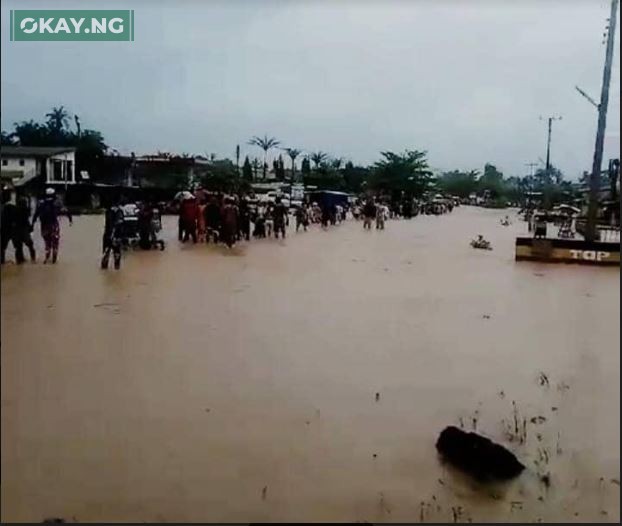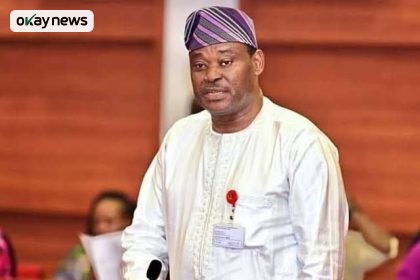Residents across 20 Nigerian states have started relocating from flood-prone areas after the Nigerian Meteorological Agency (NiMet) issued a flood alert warning of heavy rains and potential flash floods in the coming months. States such as Sokoto, Lagos, Edo, Benue, Yobe, Bayelsa, Jigawa, Delta, Cross River, Kaduna, Ondo, Adamawa, and Nasarawa are among those identified as high-risk zones.
NiMet advised residents to take precautionary actions including clearing drainage systems, preparing emergency kits, switching off electricity and gas during floods, and reinforcing mudslide prevention efforts. The agency also emphasized the importance of community awareness to mitigate flood impacts.
Okay.ng reports that despite over N620 billion ecological funds allocated to states since 2012, responses to flood risks have been inadequate, resulting in recurrent flood disasters nationwide.
In Lagos, recent flash floods were attributed to rising tides from the Atlantic Ocean and Lagos Lagoon, according to the State Commissioner for the Environment, Tokunbo Wahab. He urged calm and discouraged waste dumping into drainage channels, warning that such acts worsen flooding. Emergency teams have intensified clearing of blocked drains in affected areas.
Residents in flood-prone parts of Kaduna are actively relocating and clearing gutters. Lola Seriki, a resident of Kigo Road New Extension, said, “I have started preparing to remove my valuables and relocate to my sister’s house in Sabo Tasha.” Another resident, Abdul Alabi, warned that many ignore early warnings and suffer losses, adding, “My next step is to relocate permanently.”
Kaduna State Emergency Management Agency confirmed efforts including sensitisation campaigns, establishment of Safe Haven Centres, and dredging of River Kaduna to improve water flow. Phillips Dominic, the agency’s spokesperson, urged residents to cooperate with evacuation directives.
Flood fears also grip Ondo State, where residents have called on the government for stronger flood prevention measures after recent property losses. The Deputy Governor and SEMA Chairman, Dr. Olayide Adelami, highlighted ongoing advocacy and drainage clearing initiatives.
In Yobe’s Damaturu, flooding has caused significant disruption due to poor drainage infrastructure. Mohammed Suleiman, a retired police officer, criticized government priorities, urging urgent drainage projects.
Benue residents have relocated children to safer areas amid flood alerts, while Jigawa communities are engaging in self-help flood mitigation efforts. Jigawa’s Emergency Management Agency is collaborating with residents to erect embankments and clear drainage.
Delta State is implementing a multi-pronged flood response involving infrastructure upgrades, public awareness, and relief preparations. Commissioner for Environment Jamani Ejiro detailed ongoing dredging and canal clearing.
Cross River State faces persistent flooding challenges due to inadequate drainage, with residents appealing for government intervention. The Commissioner for Environment, Moses Osogi, assured that drainage clearance and public advisories are underway.
In Imo State, residents in flood-prone neighborhoods are relocating as water levels rise, with NEMA officials monitoring the situation closely.
Nasarawa residents are preparing for evacuation despite financial constraints, calling on the government for assistance.
Adamawa State has preemptively released N700 million to its Emergency Management Agency for flood preparedness, according to Dr. Celina Laori.
Edo State residents are also bracing for floods, with the Flood, Erosion and Watershed Management Agency actively clearing drains.
Environmentalists have criticized state governments for inadequate flood mitigation despite substantial ecological funds, urging stronger disaster management systems and community involvement.







